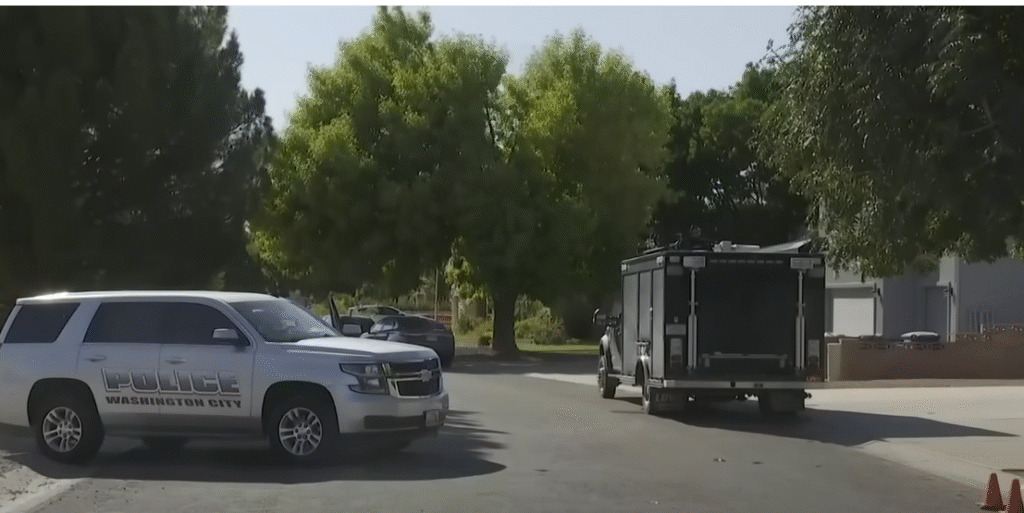In just one Facebook post, Anthony Pough’s career path changed significantly, serving as a reminder that online commentary has the power to significantly alter professional paths. His work as a Secret Service agent was based on neutrality and discipline, but his remarks regarding Charlie Kirk’s murder, which were couched in terms of karma, caused a stir and brought his career under immediate scrutiny.
Officials called Kirk’s death a political assassination, shocking the crowds at Utah Valley University where he was speaking to thousands of people. While indignation simmered in other quarters, tributes from celebrities such as Jim Jordan and Donald Trump came in quick succession. Because Pough was a federal agent sworn to impartiality rather than a dispassionate observer, his decision to publicly characterize Kirk’s rhetoric as hateful and imply that his death was karmic struck a particularly sensitive chord.
Anthony Pough – Personal and Professional Information
| Category | Details |
|---|---|
| Name | Anthony Pough |
| Profession | U.S. Secret Service Agent |
| Known For | Placed on leave after Facebook post about Charlie Kirk’s assassination |
| Agency | United States Secret Service |
| Position | Phase 2 Agent (Protective Assignments, not yet full presidential detail) |
| Controversy | Suggested Kirk’s death was “karma” in a Facebook post |
| Status | On administrative leave, investigation ongoing |
| Public Reaction | Widespread criticism, calls for termination by political leaders |
| Related Incident | Charlie Kirk assassination, Sept. 10, 2025 |
| Official Reference | CBS News – Secret Service agent suspended |

The response from Senator Marsha Blackburn was very clear: she called for Pough to be fired. In her letter to Secret Service Director Sean Curran, she emphasized that agents must maintain their neutrality even when they are not on duty and accused him of betraying trust. According to her framing, the public’s trust in the Secret Service is severely damaged by even one transgression of the unbroken standard of fairness that underpins its credibility.
In a memo that emphasized the seriousness of the situation, Curran himself reaffirmed this expectation. He reminded his agents that their job is to de-escalate, not to inflame, and that the number of politically motivated attacks is growing every day. His statement, “We must operate every day without bias towards political affiliation,” was incredibly powerful. In addition to outlining the agency’s code, that declaration mirrored the broader, and noticeably more stringent, call for professionalism in public service in recent years.
Pough’s situation is not unique. A number of professionals have been fired in recent days for anti-Kirk remarks, including a football communications coordinator, a Marine, and a dean of a Tennessee university. These acts demonstrate how organizations are becoming less tolerant of public statements that seem to contradict their principles. The trend is eerily reminiscent of corporate responses to past crises, such as Adidas severing its relationship with Kanye West following his antisemitic comments, putting honesty ahead of loyalty at any cost, whether it be monetary or personal.
This pattern reflects a larger cultural change in which professional performance is evaluated in relation to one’s personal expression on digital platforms. Karen North, a professor at USC, put it this way: “Everyone has an audience.” In Pough’s case, that audience comprised not only friends but also members of the general public, political figures, and national media. The repercussions demonstrate how social media has developed into an extraordinarily powerful amplifier that can quickly transform private remarks into institutional crises.
The episode also touches on how society deals with the passing of well-known people. Like Rush Limbaugh or Kobe Bryant before him, Kirk became a figure whose death caused a great rift in public opinion. While some criticized his rhetoric even in death, others lamented him as a fervent supporter. This polarization was reflected in Pough’s remarks, but because of his position, his remarks were especially hurtful because the Secret Service’s mission is based on the perception of bias.
Critics contend that agents cannot afford even minor mistakes, unlike activists or politicians. Bold and controversial speech frequently increases an elected official’s appeal to voters. Agents use discretion as a shield; any deviation could compromise the impartiality that is expected of them. This tension is particularly highlighted in Pough’s story, which demonstrates how roles requiring complete neutrality and free speech rights clash.
When compared to other Secret Service scandals, such as the Cartagena affair or failings during presidential protection details, a common problem emerges: one mistake affects the entire agency and damages its reputation. Even though Pough’s comments are less obvious than security lapses, they have just as much impact because they deal with credibility, which is a quality that is incredibly resilient when maintained but easily broken when compromised.
The incident is a warning story from a societal perspective. Years of service can be destroyed by a single, impetuous remark in a time when digital records are preserved forever. However, the lesson is not only punitive; it is also proactive. Institutions, workers, and citizens must all negotiate a digital environment where people can express themselves freely but where the penalties are severe and frequently harsh.

